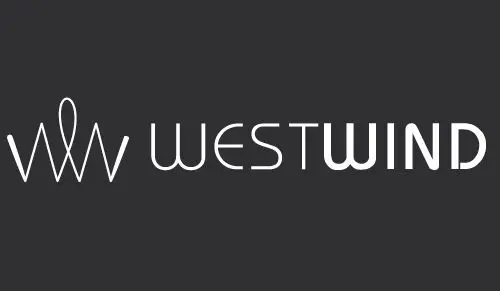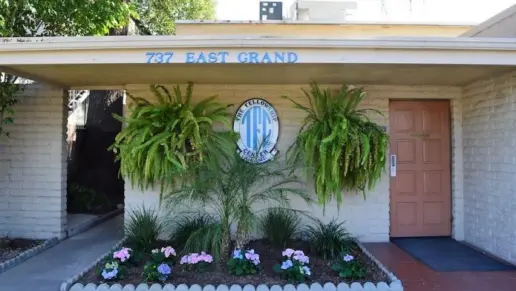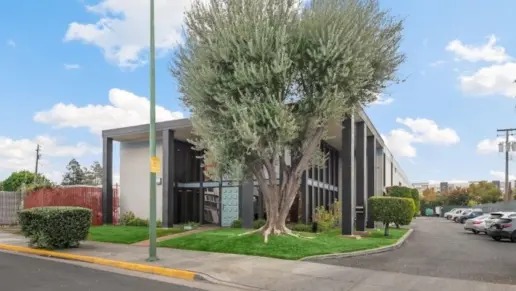About Ranch Creek Recovery
Specialty rehab programs at Ranch Creek Recovery include tailored care focusing on women's specific needs and experiences, gender-specific addiction treatment addressing unique challenges faced by men, and age-appropriate treatment for teens addressing adolescent-specific issues.
Patients at Ranch Creek Recovery will find the luxury accommodations provide comfort and serenity to enhance focus on recovery and well-being and the private rooms that give personal space for reflection and undisturbed rest during treatment. For recreation, patients can use the yoga studio to work on active mindfulness and improve flexibility, unwind in the rec room after a lengthy day of therapy, or get low-impact exercise and unwind in the pool.
Ranch Creek Recovery has received accreditations from The Joint Commission and SAMHSA.
Latest Reviews
Rehab Score
Gallery

Location
Accepted Insurance

Other Forms of Payment
Self-pay involves paying for treatment out of your own pocket. You can use savings or credit, get a personal loan, or receive help from family and friends to fund your treatment. If you don't have insurance or your insurance plan doesn't cover a specific program, self-pay can help ensure you still get the care you need.
Private insurance refers to any kind of healthcare coverage that isn't from the state or federal government. This includes individual and family plans offered by an employer or purchased from the Insurance Marketplace. Every plan will have different requirements and out of pocket costs so be sure to get the full details before you start treatment.
Addiction Treatments
Levels of Care
Treatments
The goal of treatment for alcoholism is abstinence. Those with poor social support, poor motivation, or psychiatric disorders tend to relapse within a few years of treatment. For these people, success is measured by longer periods of abstinence, reduced use of alcohol, better health, and improved social functioning. Recovery and Maintenance are usually based on 12 step programs and AA meetings.
Drug rehab in California teaches participants constructive ways to stay clean and sober. Treatment revolves around helping individuals stop using the substance they are addicted to and learn healthy habits to avoid relapse.
Many of those suffering from addiction also suffer from mental or emotional illnesses like schizophrenia, bipolar disorder, depression, or anxiety disorders. Rehab and other substance abuse facilities treating those with a dual diagnosis or co-occurring disorder administer psychiatric treatment to address the person's mental health issue in addition to drug and alcohol rehabilitation.
A combined mental health and substance abuse rehab has the staff and resources available to handle individuals with both mental health and substance abuse issues. It can be challenging to determine where a specific symptom stems from (a mental health issue or an issue related to substance abuse), so mental health and substance abuse professionals are helpful in detangling symptoms and keeping treatment on track.
Opioid rehabs specialize in supporting those recovering from opioid addiction. They treat those suffering from addiction to illegal opioids like heroin, as well as prescription drugs like oxycodone. These centers typically combine both physical as well as mental and emotional support to help stop addiction. Physical support often includes medical detox and subsequent medical support (including medication), and mental support includes in-depth therapy to address the underlying causes of addiction.
Programs

Clinical Services
Cognitive behavior therapy is a form of talk therapy that focuses on the connection between a person’s thoughts, behaviors and feelings. It is one of the few forms of psychotherapy that has been scientifically researched and found to be effective in hundreds of clinical trials for many different disorders to include but not limited to: depression, anxiety, obsessive-compulsive disorder, post-traumatic stress disorder, alcohol and drug related disorders and mood disorders. CBT is more focused on present issues, more time-limited, solution-focused and problem-solving as well as goal oriented. During therapy sessions (individual and group) clients learn to utilize specific skills that they can apply to their lives for symptoms reduction. These skills involve identifying distorted thinking patterns, modifying beliefs, relating to others in different ways, and changing negative behaviors.
Dialectical Behavior Therapy (DBT) is a modified form of Cognitive Behavioral Therapy (CBT), a treatment designed to help people understand and ultimately affect the relationship between their thoughts, feelings, and behaviors. DBT is often used for individuals who struggle with self-harm behaviors, such as self-mutilation (cutting) and suicidal thoughts, urges, or attempts. It has been proven clinically effective for those who struggle with out-of-control emotions and mental health illnesses like Borderline Personality Disorder.
Equine-Assisted Therapy provides a metaphoric experience with horses to promote emotional growth and helps build confidence. This experiential therapy teaches people about themselves, allows recognition of dysfunctional patterns of behavior, and helps define healthy relationships. Horses are typically non-judgmental and have no expectations or motives. Therefore, a guest can practice congruency without the perceived fear of rejection. The horse assists in making guests aware of their emotional state as the horse responds in reaction to their behavior. Through working with the horse, guests can gain insight into their feelings, behaviors, patterns, congruency, boundaries, and stumbling blocks to recovery. The process can be a very effective adjunct to treatment.
Experiential therapy is a form of therapy in which clients are encouraged to surface and work through subconscious issues by engaging in real-time experiences. Experiential therapy departs from traditional talk therapy by involving the body, and having clients engage in activities, movements, and physical and emotional expression. This can involve role-play or using props (which can include other people). Experiential therapy can help people process trauma, memories, and emotion quickly, deeply, and in a lasting fashion, leading to substantial and impactful healing.
Ranch Creek Recovery - Business Park makes family education on addiction and counseling a very important part of their programs process. They know that a lot of the time family is the encouragement for the clients admission, and they will be a large part of clients outcome after treatment. It is important for family members to receive the education in order to fully understand the addiction and help the client succeed. They offer weekly family sessions, as well as private phone calls or video calls for those who are out of state and unable to make each weekly session. Their counselors will work with the patients on their availability to make sure they are receiving education and counseling sessions. They also offer a 2 day family intensive for those that live out of state and would like to make the trip out for in person sessions.
In individual therapy, a patient meets one-on-one with a trained psychologist or counselor. Therapy is a pivotal part of effective substance abuse treatment, as it often covers root causes of addiction, including challenges faced by the patient in their social, family, and work/school life.
Sound therapy (aka sound healing or vibrational medicine) uses sonic vibrations to stimulate healing at the cellular level. Vibrations, either from the human voice or resonant objects like tuning forks, gongs, or Tibetan bowls, affect cellular resonance in the body, which can help heal the impact of anxiety, depression, trauma, and more.
Amenities
-
Private Setting
-
Yoga Studio
-
Private Rooms
Accreditations

The Joint Commission, formerly known as JCAHO, is a nonprofit organization that accredits rehab organizations and programs. Founded in 1951, the Joint Commision's mission is to improve the quality of patient care and demonstrating the quality of patient care.
Joint Commission Accreditation: Yes

The Substance Abuse and Mental Health Services Administration (SAMHSA) is a branch of the U.S. Department of Health and Human Services. Established in 1992 by congress, SAMHSA's mission is to reduce the impact of substance abuse and mental illness on American's communities.
SAMHSA Listed: Yes
Contact Information
43264 Business Park
Temecula, CA 92590













